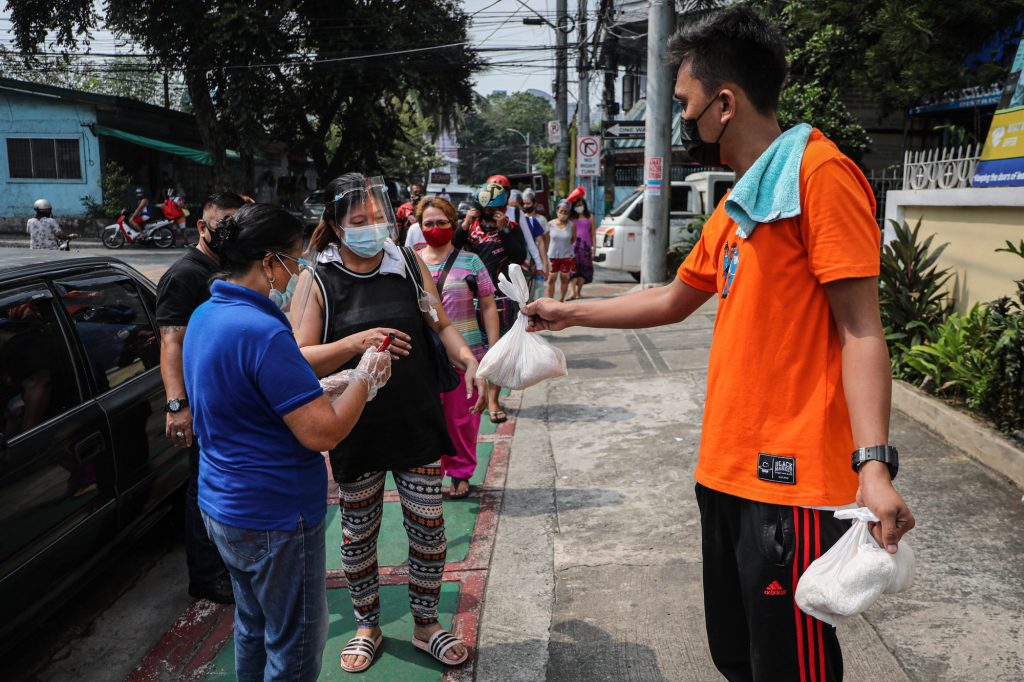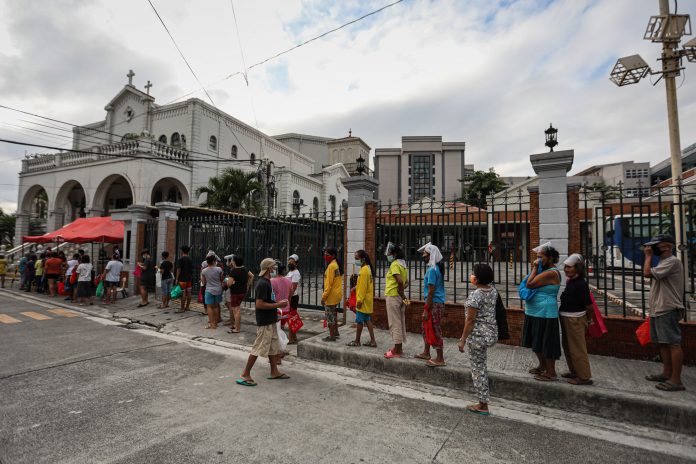Reflection for the 5th Sunday of Easter (Cycle B)
Dom Hélder Câmara, the Archbishop of Olinda and Recife in Brazil once remarked, “Quando dou comida aos pobres, chamam-me de santo. Quando pergunto por que eles são pobres, chamam-me de comunista,” which means “When I give food to the poor, they call me a saint. When I ask why the poor have no food, they call me a communist.”
Today, as we cope daily with the question if ever our country can survive the pandemic because of the neocolonialist situation we have found ourselves in, we mirror the woes of those who are trying in their own way to make a little difference: “When I pray for the poor, they call me a saint. When I try to help the poor help themselves, they call me a communist.”
The issue of the ridiculous criticisms against the Maginhawa community pantry – and all other such efforts emanating from the grassroots – is an annoying affair, if not a laughable one. How can anyone in his right mind associate and correlate a genuine initiative of neighborly solidarity and support, with the subversive ambitions to sow social disorder or covert actions to grab power? If you find it amusing seeing the stupidity of charging with income tax evasion, an enterprising child cooking and selling fried peanuts for her classmates just to make a little more money, then it’s essentially the same thing.
But the community pantries are not about making a little more money. It is simply about helping one another. But how can “helping one another,” when poor people are faced with slim chances that such help will be coming from anyone else, be interpreted with unfounded and baseless suspicions of “dangerous deceptions” or “mysterious plots of destabilization?”
It is interesting to think about how much our humanity, in its long history of encounters with villainous peoples, has already been conditioned to think negatively about what is good … and to rationalize positively, even defend defiantly, about what is evil. Is it perhaps we have experienced too much distrust, that trust itself is a rare if not an impossible reality? Is it perhaps we have had too little of authentic love, that we find it easier to hate? Is it because we who are more inclined to demonize others, actually know we are already demons ourselves?
In today’s readings, John is telling us about a genuine love, a love exhibited in the community pantries but a love whose point we may have missed. Genuine love is both zealous and courageous, like Paul’s love, which transformed the former Christian persecutor into the adventurous and forward-looking Apostle we revere today. Genuine love speaks of the truth not through flattering words, but through unflattering action. Genuine love is a love with a conscience, a love that dares not to hold itself back, a love willing to endure undeserved trials and sacrifices, a love we can boast before God.

The love shown, hoping to be practiced, learned and cherished by the poor people at Maginhawa is genuine love. It is a love that will never go unblessed by the Spirit who promised to dwell in the hearts of the accused and the accusers, the same Spirit who makes genuine love and trust a possible reality. It is a love which as you see in their symphony of sharing, enables people to nourish and feed each other so that at least no one will die of hunger or thirst.
Through simple and humble community acts, the love they are trying to express – and which we are trying to suppress – strongly beckons us to praise and worship God in the streets, as they do; strongly challenges us to serve and share with “undeserving” others, as they do; strongly inspires us to proclaim and emulate God’s faithfulness in quiet and anonymous witnessing, as they do. These smaller communities have taught our much larger communities what “being community” really means, for when have communities been built and founded upon selfishness rather than selflessness; in hierarchy rather than equality; through a power that compels and dominates rather than through a power that comes from below and from within?
To what degree of folly in our way of thinking do we have when we say that such mutual responsibility is not genuine love? Is love for us only about compulsion, intimidation and power? Is community-building for us only about lies, pride and profits?
The only authentic teacher of genuine love is the Christ. May we learn from him, clinging to him, abiding and confiding in him so that we may love as much as we ought to. If we have become so foolish as to blame people of possessing the love which we do not ourselves have, then we deserve to be cut, thrown away and burned in the fire of irreversibly lost memories. But if we will otherwise be prudent enough and strive to listen more to “the vine,” then genuine love will beget more genuine love, and more people will become “more human.”
It is therefore futile to search for “communist” pantries, because there are none. If it is “terrorists” that we fear, then it is wiser to fear the “terrorist” that resides in us.
Brother Jess Matias is a professed brother of the Secular Franciscan Order. He serves as minister of the St. Pio of Pietrelcina Fraternity at St. Francis of Assisi Parish in Mandaluyong City, coordinator of the Padre Pio Prayer Groups of the Capuchins in the Philippines and prison counselor and catechist for the Bureau of Jail Management and Penology.
The views expressed in this article are the opinions of the author and do not necessarily reflect the editorial stance of LiCAS.news.









